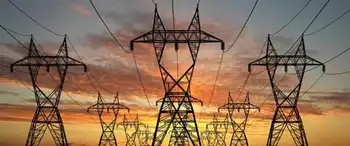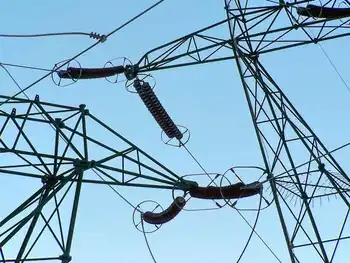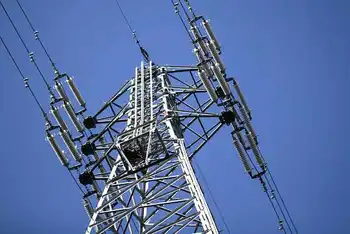Affordable Clean Energy Rule Lawsuit pits EPA and coal industry allies against health groups over Clean Power Plan repeal, greenhouse gas emissions standards, climate change, public health, and state authority before the D.C. Circuit.
Key Points
A legal fight over EPA's ACE rule and CPP repeal, weighing emissions policy, state authority, climate, and public health.
✅ Challenges repeal of Clean Power Plan and adoption of ACE.
✅ EPA backed by coal, utilities; health groups seek stricter limits.
✅ D.C. Circuit to review emissions authority and state roles.
The largest trade association representing coal interests in the country has joined other business and electric utility groups in siding with the EPA in a lawsuit challenging the Trump administration's repeal of the Clean Power Plan.
The suit -- filed by the American Lung Association and the American Public Health Association -- seeks to force the U.S. Environmental Protection Agency to drop a new rule-making process that critics claim would allow higher levels of greenhouse gas emissions, further contributing to the climate crisis and negatively impacting public health.
The new rule, which the Trump administration calls the "Affordable Clean Energy rule" (ACE), "would replace the 2015 Clean Power Plan, which EPA has proposed to repeal because it exceeded EPA's authority. The Clean Power Plan was stayed by the U.S. Supreme Court and has never gone into effect," according to an EPA statement.
EPA has also moved to rewrite wastewater limits for coal power plants, signaling a broader rollback of related environmental requirements.
America's Power -- formerly the American Coalition for Clean Coal Electricity -- the U.S. Chamber of Commerce, the National Mining Association, and the National Rural Electric Cooperative Association have filed motions seeking to join the lawsuit. The U.S. Court of Appeals for the District of Columbia Circuit has not yet responded to the motion.
Separately, energy groups warned that President Trump and Energy Secretary Rick Perry were rushing major changes to electricity pricing that could disrupt markets.
"In this rule, the EPA has accomplished what eluded the prior administration: providing a clear, legal pathway to reduce emissions while preserving states' authority over their own grids," Hal Quinn, president and chief executive officer of the mining association, said when the new rule was released last month. "ACE replaces a proposal that was so extreme that the Supreme Court issued an unprecedented stay of the proposal, having recognized the economic havoc the mere suggestion of such overreach was causing in the nation's power grid."
Around the same time, a coal industry CEO blasted a federal agency's decision on the power grid as harmful to reliability.
The trade and business groups have argued that the Clean Power Plan, set by the Obama administration, was an overreach of federal power. Finalized in 2015, the plan was President Obama's signature policy on climate change, rooted in compliance with the Paris Climate Treaty. It would have set state limits on emissions from existing power plants but gave wide latitude for meeting goals, such as allowing plant operators to switch from coal to other electric generating sources to meet targets.
Former EPA Administrator Scott Pruitt argued that the rule exceeded federal statutory limits by imposing "outside the fence" regulations on coal-fired plants instead of regulating "inside the fence" operations that can improve efficiency.
The Clean Power Plan set a goal of reducing carbon emissions from power generators by 32 percent by the year 2030. An analysis from the Rhodium Group found that had states taken full advantage of the CPP's flexibility, emissions would have been reduced by as much as 72 million metric tons per year on average. Still, even absent federal mandates, the group noted that states are taking it upon themselves to enact emission-reducing plans based on market forces.
In its motion, America's Power argues the EPA "acknowledged that the [Best System of Emission Reduction] for a source category must be 'limited to measures that can be implemented ... by the sources themselves.'" If plants couldn't take action, compliance with the new rule would require the owners or operators to buy emission rate credits that would increase investment in electricity from gas-fired or renewable sources. The increase in operating costs plus federal efforts to shift power generation to other sources of energy, thereby increasing costs, would eventually force the coal-fired plants out of business.
In related proceedings, renewable energy advocates told FERC that a DOE proposal to subsidize coal and nuclear plants was unsupported by the record, highlighting concerns about market distortions.
"While we are confident that EPA will prevail in the courts, we also want to help EPA defend the new rule against others who prefer extreme regulation," said Michelle Bloodworth, president and CEO of America's Power.
"Extreme regulation" to one group is environmental and health protections to another, though.
Howard A. Learner, executive director of the Environmental Law & Policy Center of the Midwest, defended the Clean Power Plan in an opinion piece published in June.
"The Midwest still produces more electricity from coal plants than any other region of the country, and Midwesterners bear the full range of pollution harms to public health, the Great Lakes, and overall environmental quality," Learner wrote. "The new [Affordable Clean Energy] Rule is a misguided policy, moves our nation backward in solving climate change problems, and misses opportunities for economic growth and innovation in the global shift to renewable energy. If not reversed by the courts, as it should be, the next administration will have the challenge of doing the right thing for public health, the climate and our clean energy future."
When it initially filed its lawsuit against the Trump administration's Affordable Clean Energy Rule, the American Lung Association accused the EPA of "abdicat[ing] its legal duties and obligations to protect public health." It also referred to the new rule as "dangerous."
Related News












